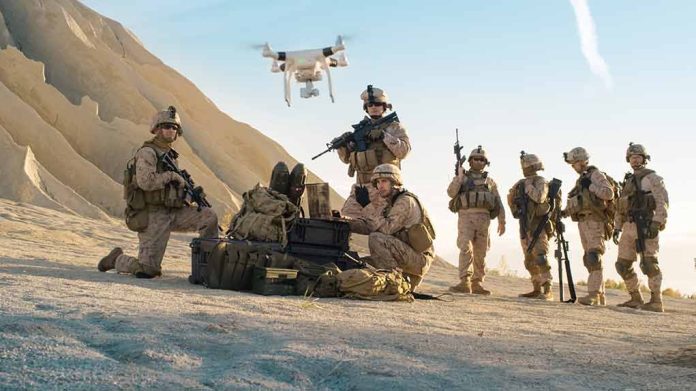
The historic deployment of German troops to Lithuania marks a pivotal shift for NATO’s eastern defenses against potential Russian aggression.
Key Takeaways
- Germany’s deployment of troops to Lithuania is its first permanent foreign deployment since World War II.
- Up to 5,000 German soldiers will be stationed in Lithuania by 2027.
- Russia’s updated nuclear policy poses heightened risks in the region.
- NATO’s eastern flank is being fortified due to mounting geopolitical tensions.
A Historic Deployment: Addressing New Threats
Germany is establishing a permanent military presence in Lithuania, marking a historic post-World War II shift in strategy. This decision reflects NATO’s response to escalating tensions with Russia. Brigadier General Christoph Huber leads the German brigade stationed in Lithuania. Approximately 150 German soldiers are present, expected to increase significantly by year’s end. The base in Rūdninkai is strategically important, given Lithuania’s proximity to Russia and Belarus.
The full deployment aims for completion by 2027, manifesting Germany’s increased commitment to NATO’s objectives. Germany’s move aligns with broader European security concerns. In light of Russia’s recent policy shifts and military actions, this deployment aims to deter potential threats and reassure Eastern European allies.
Strategic Preparations in an Uncertain Geopolitical Landscape
Secret German documents reveal broader NATO strategies, anticipating a range of scenarios including a potential Russian invasion. Plans indicate mobilizing up to 800,000 NATO troops in response to Russian aggression. Operation Deutschland, a comprehensive 1,000-page document, outlines these strategic preparations, covering logistical aspects like the movement of 200,000 military vehicles.
The intelligence reports emphasize a readiness for potential conflict escalation, including changes in Russian nuclear policy. Sweden and Norway are also providing guidance to their citizens, highlighting regional concerns. These measures underscore the gravity of the situation and reflect collective efforts to buttress Europe’s defenses against looming threats.
Germany and NATO: An Evolving Partnership for Security
The German deployment represents a strategic evolution for NATO. It signifies a strengthened commitment to maintaining security and stability on Europe’s eastern frontier. “We have a clear mission. We have to ensure the protection, freedom and security of our Lithuanian allies here on NATO’s eastern flank,” stated Brigadier General Christoph Huber.
NATO’s collective defense framework necessitates such actions in response to growing threats. The deployment further bolsters defense capabilities along the alliance’s eastern borders while deterring potential adversaries. This historic military engagement affirms NATO’s resolve and Germany’s pivotal role in upholding peace and security in the region.





